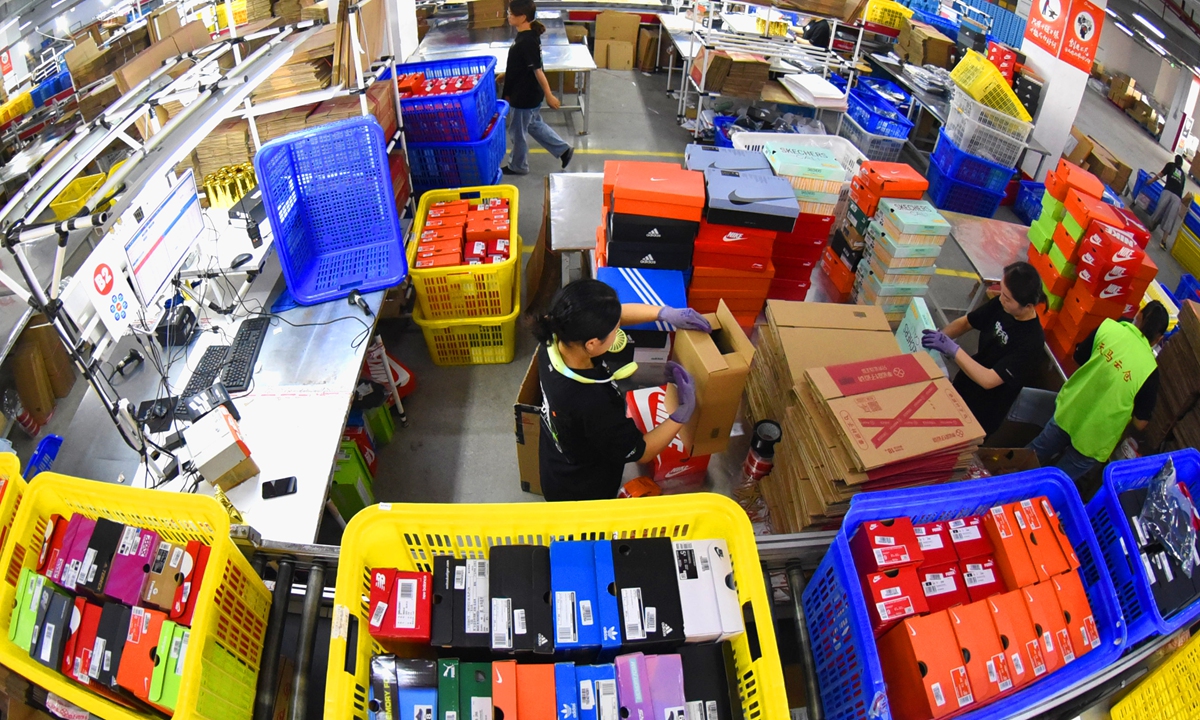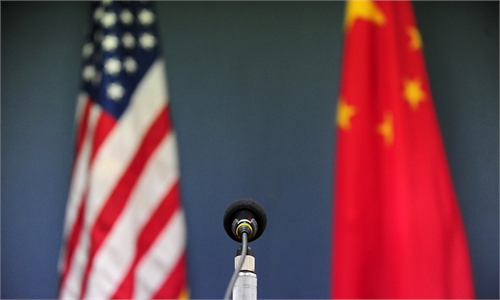China’s draft revisions to e-commerce law double down on IPR infringement crackdown

Staff at an industry zone in Lianyungang, East China's Jiangsu Province sort packages on Friday, the day China's major e-commerce platforms including JD and Alibaba's Tmall celebrate this year 618 mid-year shopping festival. Photo: VCG
China's top market regulator is seeking public comment on revisions to the country's e-commerce law, with proposed revised terms doubling down on the crackdown on intellectual property rights (IPR) infringement by online vendors.The harsher regulatory stance might cause some short-term headwinds for e-commerce platforms, but its focus on well-regulated, rather than runaway, growth would illuminate the path to more sustainable development for the world's largest e-commerce market, industry watchers said.
The State Administration for Market Regulation (SAMR) said in an announcement on Tuesday that it had drafted guidelines on revising the e-commerce law, in an effort to strengthen IPR protection, regulate the platform economy and foster the sustainable and healthy development of the e-commerce sector.
Fraudulent non-infringement statements shown by merchants on e-commerce platforms, if resulting in relatively big losses, shall be entitled to a double amount of compensation, read the revisions laid out in the SAMR statement.
E-commerce platform operators that fail to take necessary measures in accordance with laws and regulations against IPR infringements by merchants on their platforms will be ordered to make rectifications by a specific date and could face fines of up to 2 million yuan ($309,511.20).
The worst offenders could have their network operating licenses revoked, according to the revised terms.
The SAMR is seeking comment through October 14.
The tougher stance on IPR infringement might mean problems for e-commerce platforms in the foreseeable future, as vendors that commit IPR violations and links to copycat items will have to be eradicated by these platforms, Liu Dingding, a Beijing-based independent tech analyst, told the Global Times on Tuesday.
"The resultant higher compliance costs actually bode well for the [e-commerce] sector's longer-term development," Liu said, because the proposed revisions put the quality growth of the platform economy on the front burner.
China has risen to prominence in the e-commerce arena, underpinned by its commitments to mobile communications infrastructure, the expansion of its wide-reaching logistics network, and its rapidly growing mobile internet adoption and usage, observers said.
China's online retail sales of physical goods grew by 14.8 percent year-on-year to 9.8 trillion yuan in 2020, making up 24.9 percent of the country's total retail sales, official data showed.
That makes China the world's top market for online retail sales for the eighth year in a row. The country began mulling an e-commerce law in 2013 and the much-anticipated law came into force on January 1, 2019.


